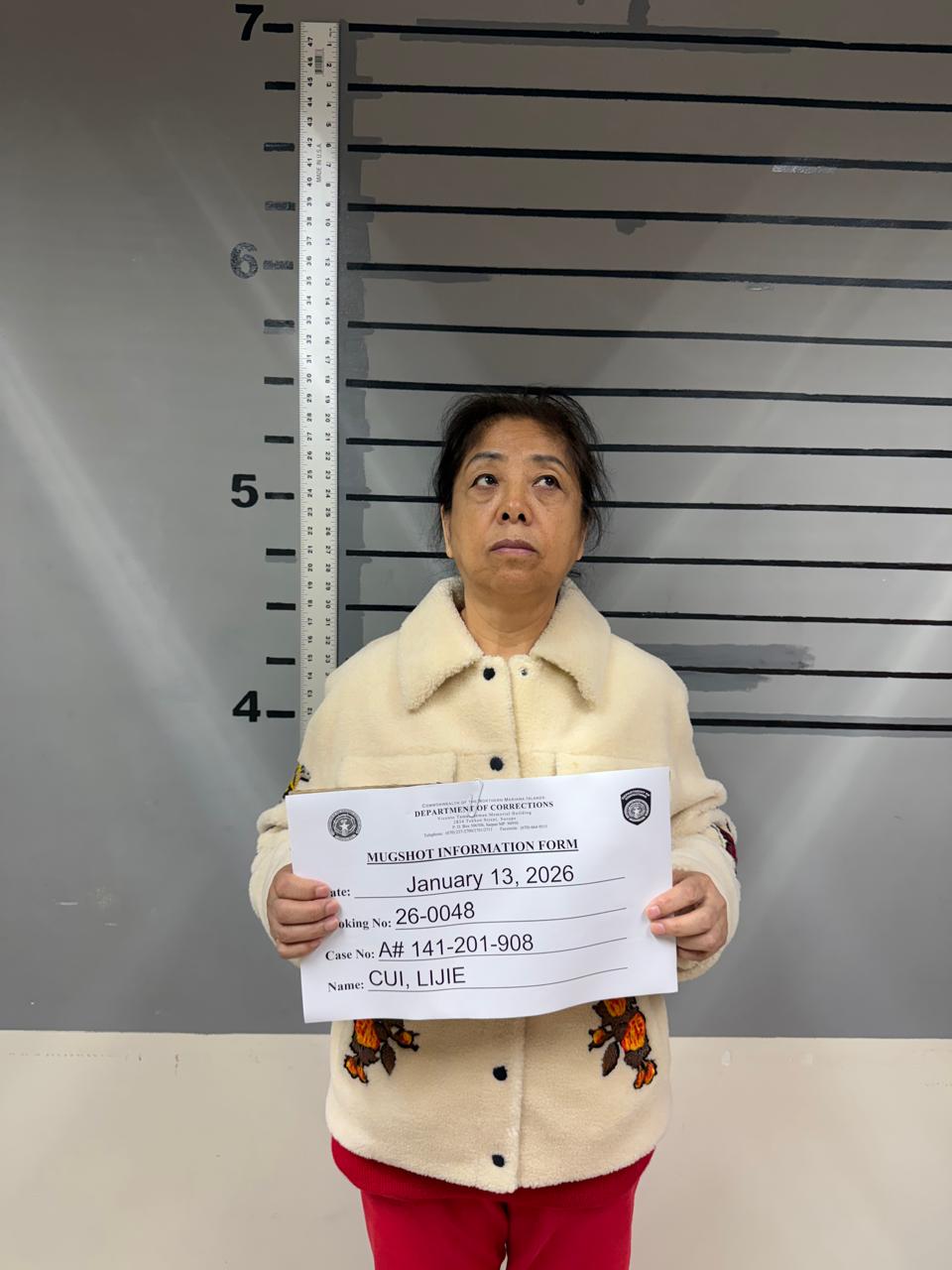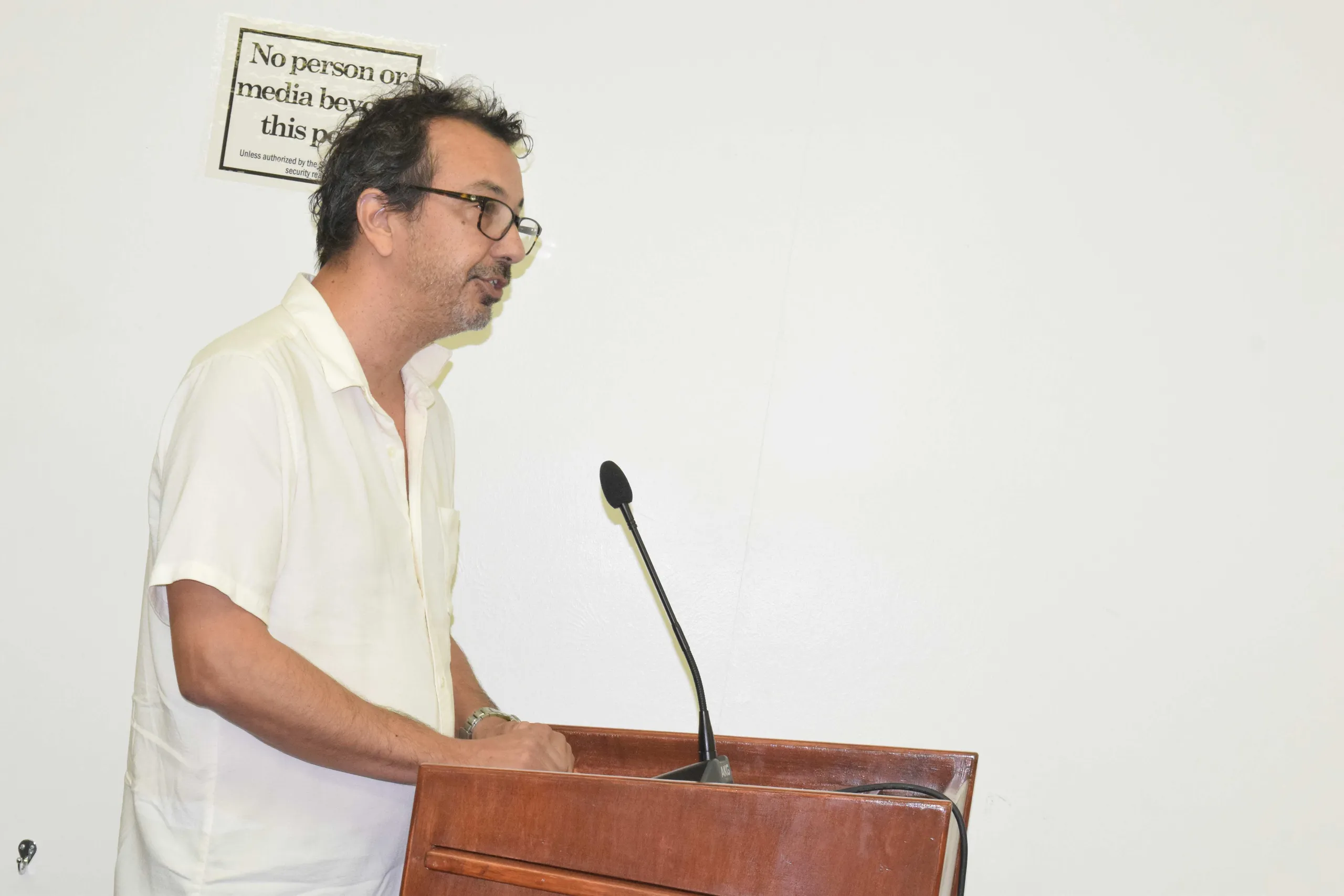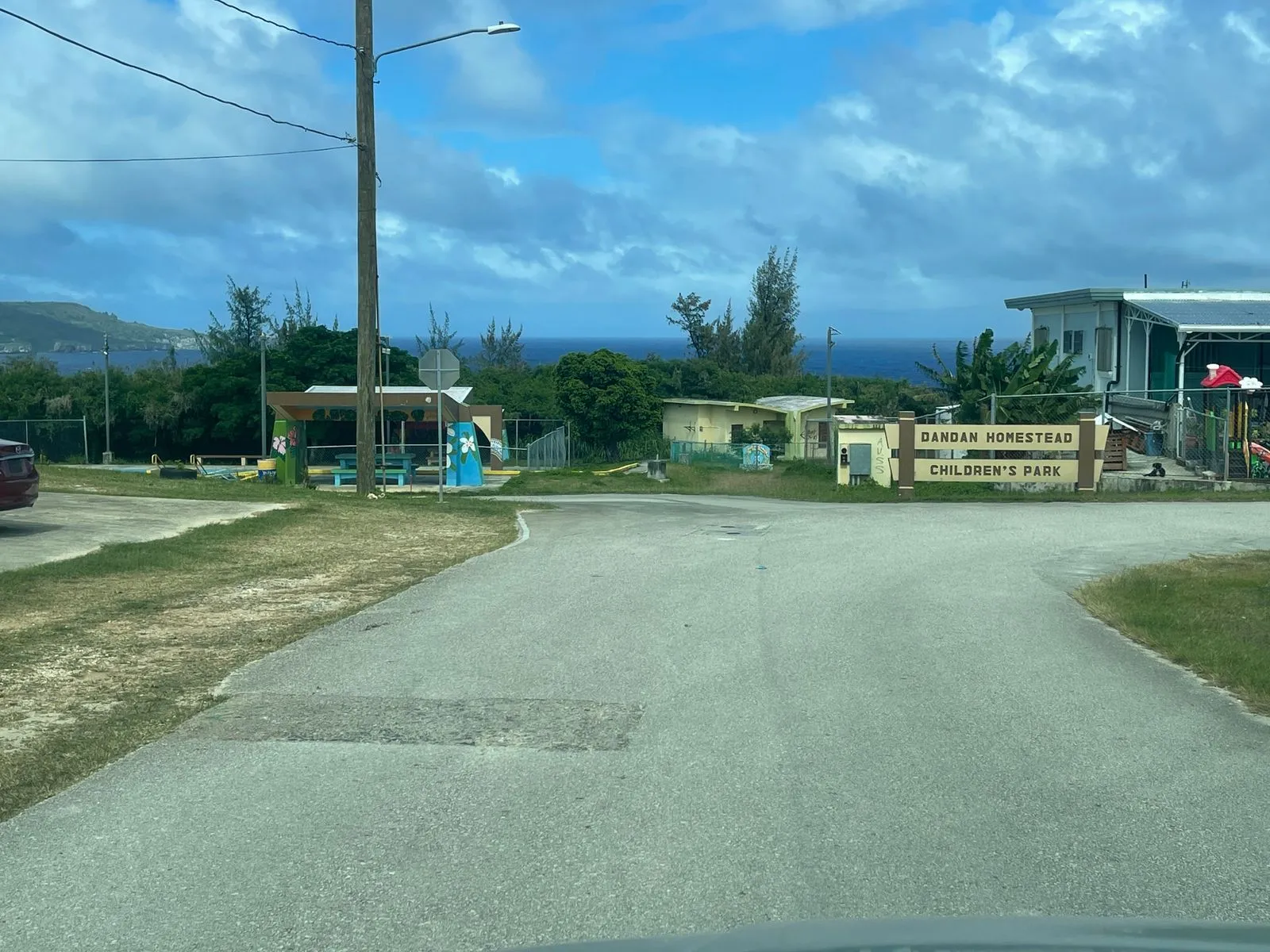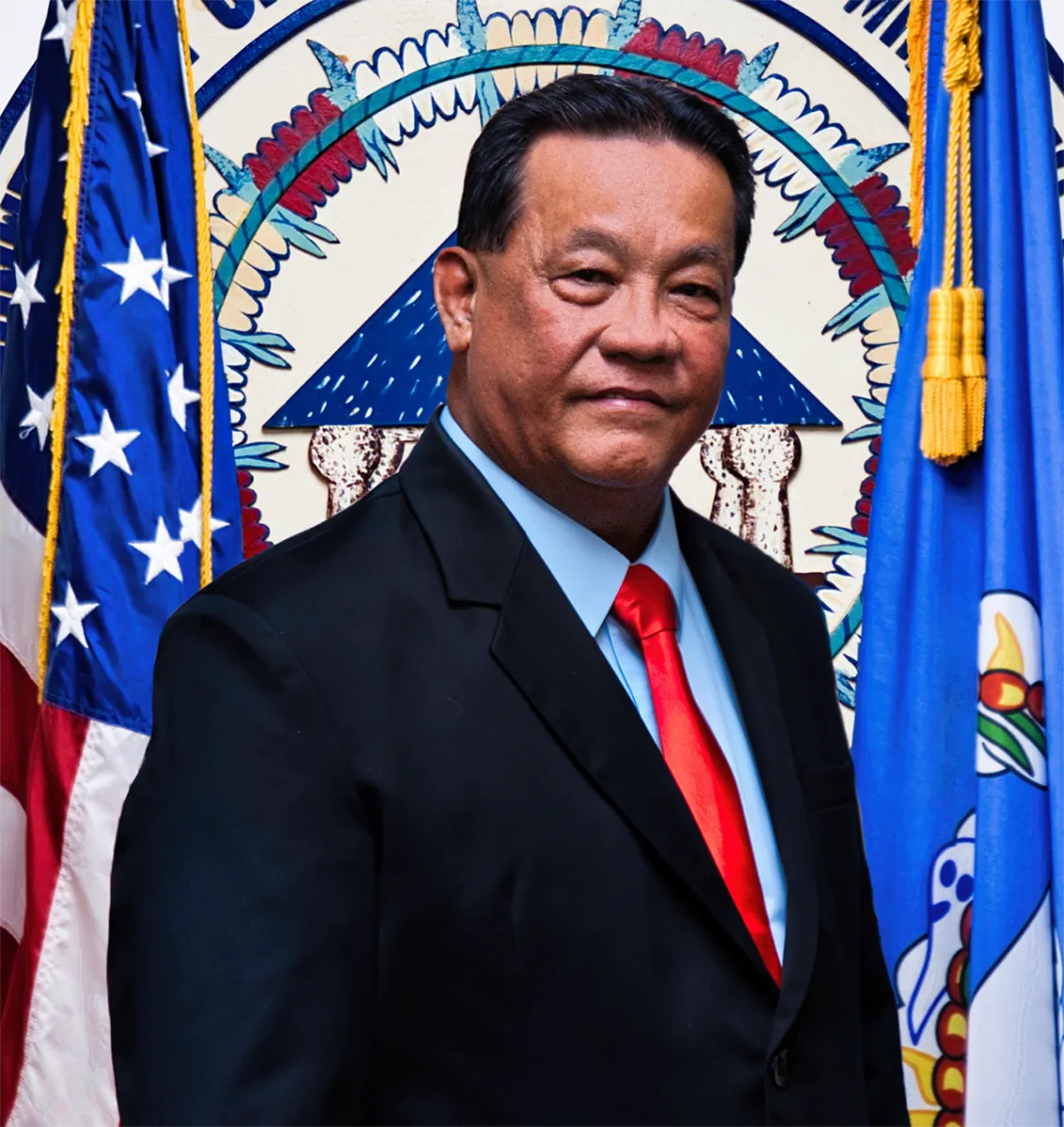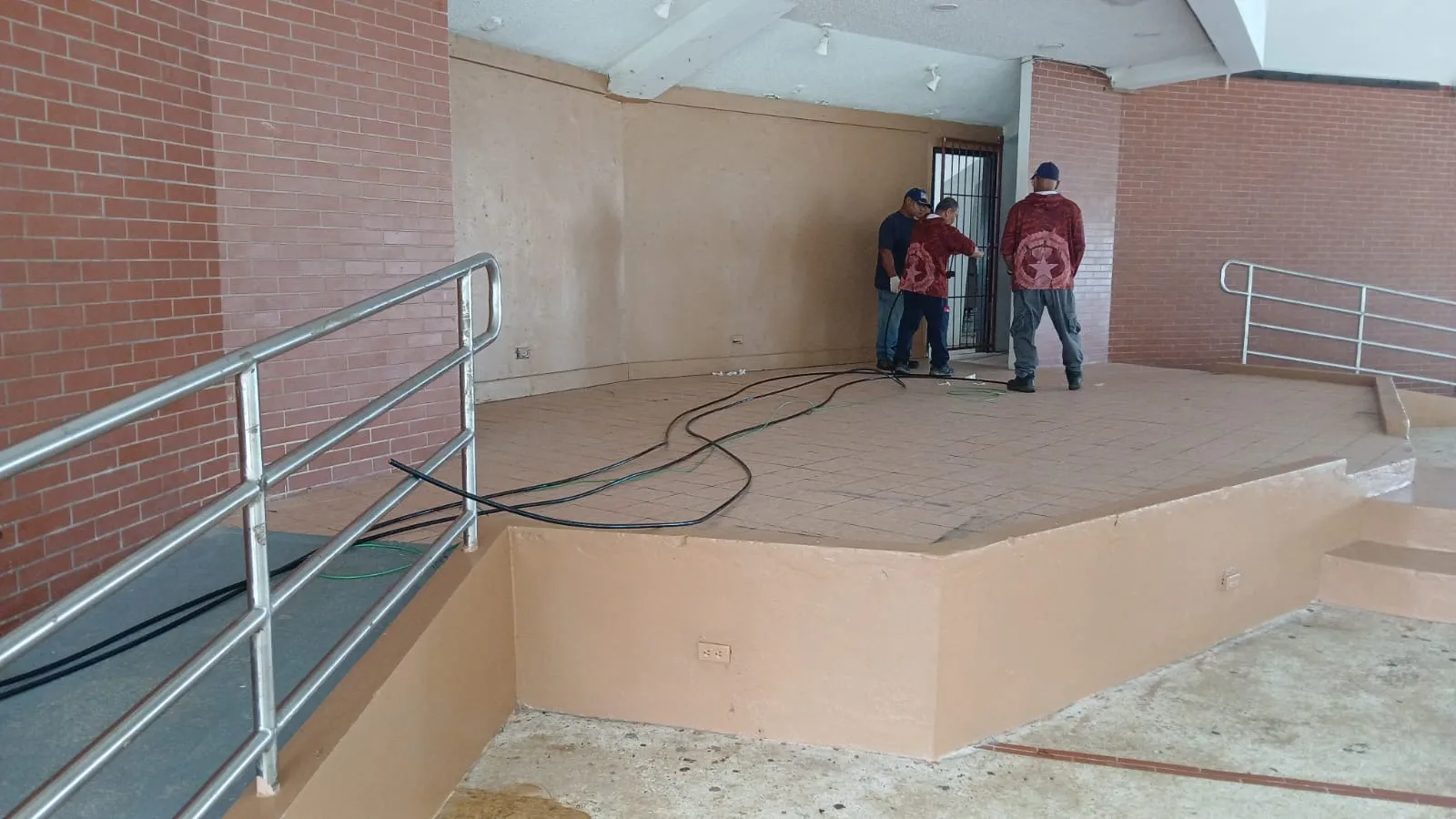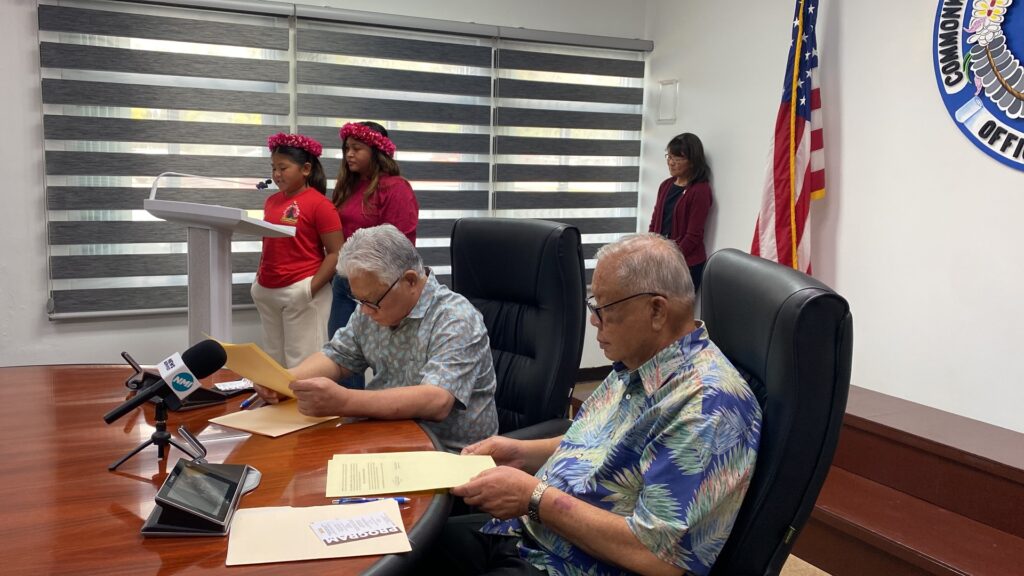CITING the link between pugua use and oral cancer, stakeholders urged community members to undergo free oral cancer screenings at dental clinics or the Commonwealth Healthcare Corporation.
On Tuesday, April 1, Gov. Arnold I. Palacios and Lt. Gov. David M. Apatang signed a proclamation designating April as Oral Cancer Awareness Month.
CHCC oncologist Dr. Peter Brett said that while working in California, he would see one or two patients a year with oral cancer. On Saipan, because of pugua, that number was closer to 20 per year.
“We all know that betelnut itself—or combined with tobacco— that’s what causes oral cancer,” said Brett. “If no one chewed betelnut here, maybe we’d have one case of oral cancer a year instead of 20.”
According to statistics provided by the Commonwealth Cancer Association, which organized the proclamation signing, from 2018 to 2023, 120 people in the CNMI were diagnosed with oral cancer. Forty of those patients died within those six years. Seventy-three percent of the patients were between the ages of 18 and 59, with 62% of all diagnoses occurring in men.
Brett said residents who find something wrong with their mouths should get screened for oral cancer immediately.
“I think the most important thing that people need to be aware of is that if something’s wrong in the mouth, as soon as you detect it, maybe wait a week to make sure it doesn’t go away on its own. But after a week, if it’s still there, you need to get it checked up right away,” he said. “We can prevent most cases of people dying of oral cancer if people just went in as soon as they felt something wrong or saw something wrong in their mouth, or if they got a regular annual screening to detect it.”
He said the most common type of patient he sees comes to him when the disease has progressed into stage four cancer, when it is so large it has already spread into the bone of the mouth or into lymph nodes.
“The typical patient is about 45 years old, who has noticed a lump in his mouth for about six [or] nine months. Then it starts hurting in the jaw, [his] face is starting to swell up a little bit, and then he starts having bleeding from the mouth. He knows about this for six to nine months, but he’s kind of hoping that things will get better and go away…but it’s not going away. It’s just getting worse.”
Brett said there are treatments on island that doctors can use to help, but by stage 4, it is “very hard to cure” no matter what technique is used.
“There’s a very high chance this person is eventually going to die of the cancer within a year or two,” Brett said.
“[For] a patient like this, normally we have to send them off island to Los Angeles. They do radical surgery; the patient comes back with a lot of scarring. After the radical surgery, they need very toxic radiation treatment to their face and mouth. It causes a lot of pain [and] it’s really difficult to go through. We keep an eye on them and almost always, the cancer comes back after all that.”
The next most common patients Brett sees are those who come to him after being diagnosed with cancer in its first stage. He said this makes a lifesaving difference.
“They go see a dentist. The dentist says, ‘Oh that doesn’t look good,’ and the dentist either refers [the patient] to our [Ear, Nose, and Throat doctor] or does a biopsy…finds out sure enough it’s an oral cancer. But this [cancer] is small,” Brett said.
With early detection, the cancer can be removed through surgery, which also prevents other, more physically costly procedures, Brett said.
“After that, usually a patient doesn’t need any more treatment nor radiation or chemotherapy. Four times out of five the person is cured. Cancer is gone. We always hope that the person is caught early…it makes such a difference,” he said.
Iris Quitugua and her mother, Jaclyn Quitugua, attended the proclamation signing in honor of the late Cisco Cruz—Jaclyn’s husband and Iris’ father—whom they described as “strong, brave, and full of life.”
“Cancer took [my father] away too soon,” she said. It was not just his fight; it became our family’s fight. And we want to make sure that others do not have to experience this same pain. The best way to stop oral cancer is to prevent it. We can do this by making healthier choices, avoiding betel nut and tobacco, and visiting the dentist for regular check-ups.”
Jocelyn Deleon Guerrero, CCA board president, said oral cancer has “taken the lives of too many of our loved ones, subjecting them to immense suffering.” She hopes that residents become aware of how important early detection is.
“In the CNMI, the use of betel nut or pugua has been closely linked to this disease. This is not just about what is mixed with the nut. The carcinogenic danger is within the nut itself. As we enter 2025, we must renew our efforts and push for stronger measures and education. Our call to action is clear. We must protect our future, our youth and people. Prevention and early detection are key,” she said.
All dental clinics on island give free oral cancer screenings, she added.
According to the CCA, the symptoms of oral cancer include:
White or red sores or patches that do not heal on the gums, tongue, or lining of the mouth; sores on the lips or mouth that bleed easily and do not heal within two weeks; unusual bleeding, numbness, pain, or tenderness in the mouth; difficulty chewing or swallowing, speaking, or moving your jaw or tongue; difficulty opening your mouth.
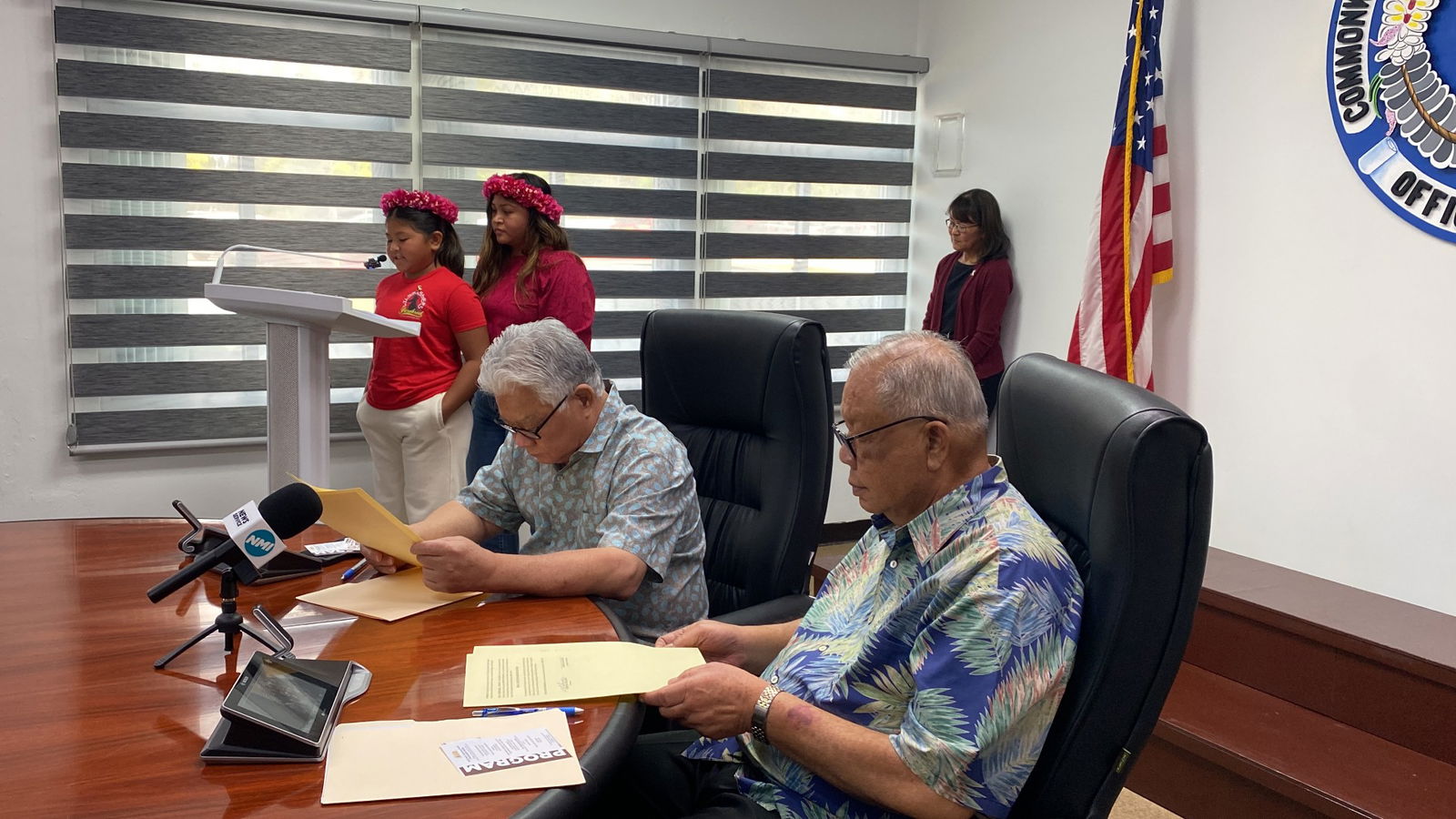
Iris Quitugua, standing with her mother Jaclyn, reads from the proclamation designating April as Oral Cancer Awareness Month.
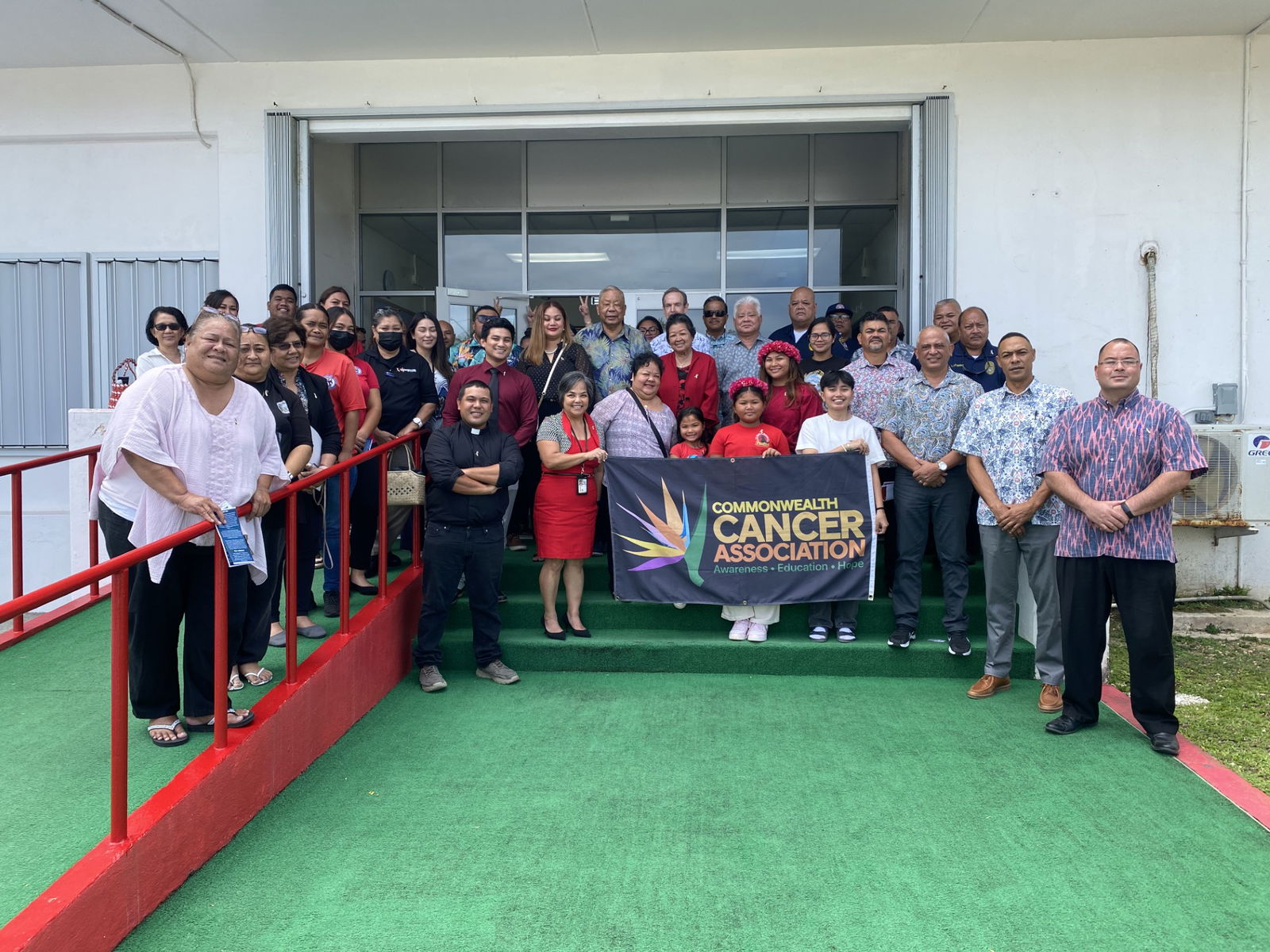
Attendees of the proclamation signing take a group photo outside the governor’s office
Photo by Andrew Roberto


